Latest
Latest
The Secret History of the Jews From Shanghai
Time:2019/4/30 14:29:14
A small but important trail of refugees fleeing the Nazis took an unusual detour through China. A new exhibit in Brooklyn marks the journey.
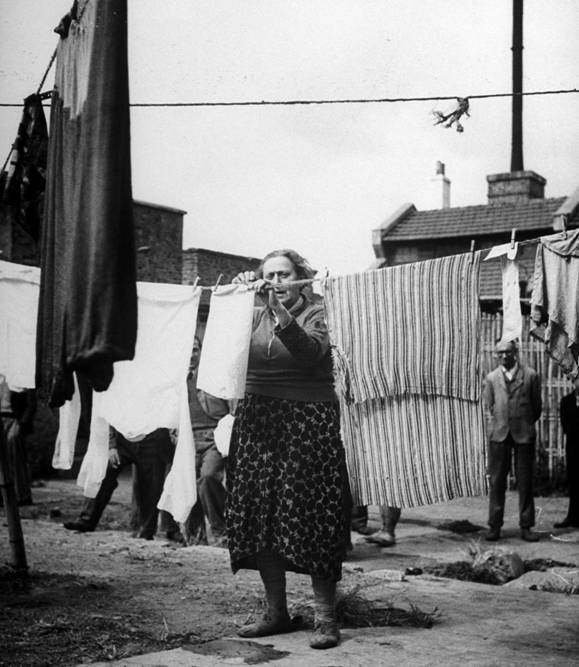
By Aileen Jacobson
·April 25, 2019
·
Shanghai was the only option. That was what my parents discovered when they fled Hitler’s Germany. By the time they left, in separate journeys, they wound up in that international city in China, the last place in the world that would take in Jewish refugees.
It felt a little like sailing to the end of the earth, my father often said.
My parents became part of a community in Shanghai of some 18,000 European Jews who learned to live in barracks or crowded rooms, used chamber pots, sometimes ate only one hot meal a day from a communal kitchen and walked teeming streets filled with hawkers by day and, in the early hours, trucks picking up corpses. But they also had schools, cultural institutions and a thriving social life, complete with Viennese cafes. And they survived.
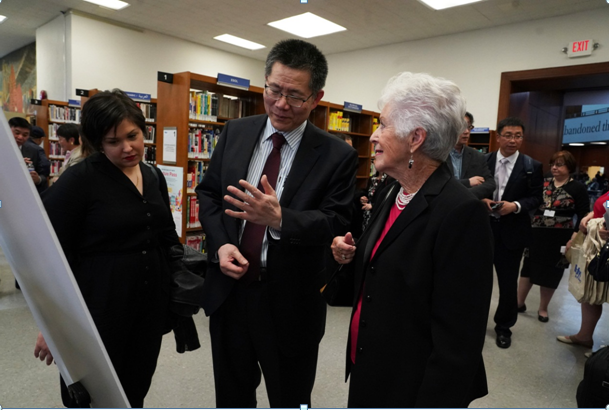
Joclyn Wood, Frank Xu and Betty Grebenschikoff at the “Jewish Refugees in Shanghai” exhibition at the Brooklyn Public Library.CreditMichelle V. Agins/The New York Times
This fascinating, little-known and newly relevant bit of history is getting greater attention these days. “Hello Gold Mountain,” a chamber music composition inspired by the topic was performed in Nashville in February and hopes to tour New York. And most prominently there is a major project from the Brooklyn Public Library, “Jewish Refugees in Shanghai,” which brings an exhibition, films and other programs to four libraries through the month of May.
Frank Xu, the library manager who leads the project, grew up in Hongkou, the Shanghai district where Jews and Chinese lived side by side, and heard stories from his parents and grandparents. He realized that few Americans knew anything about it and thought that the “spirit of kindness” that permeated this unusual Chinese-Jewish bond could inspire a feeling of responsibility to help the refugee, when the very idea seems under attack today. “Others closed their doors,” he said. “Shanghai opened the door.”
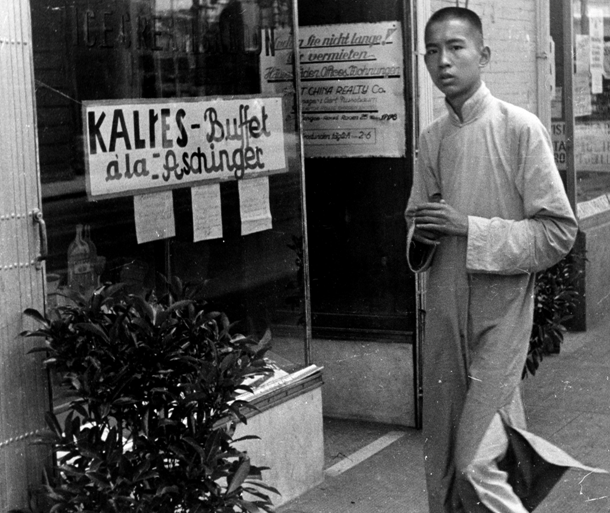
A German restaurant in Shanghai, considered the last “free city” for European emigrants in the 1930s.CreditWolfgang Weber/ullsteinbild, via Getty Images
My mother, named IlseLudomer at the time, arrived in Shanghai in 1939 at age 18 with her parents. The previous year, after the destructive rampage against Jews known as Kristallnacht, they had been forced out of their home, an apartment over the clothing store they owned, in the small German town of KoenigsWusterhausen. They stayed with relatives in nearby Berlin and desperately searched for a way to escape Hitler’s rule.
My father, Erich Jacobsohn, already had a law degree in 1939, though he was forbidden by Nazi law to practice. He returned to his parents’ home in Stavenhagen, a tiny town in northern Germany, where he and his father were sent to a work camp after Kristallnacht. Other prisoners later went to Auschwitz, but Erich’s mother purchased the release of her husband and son from the Nazis before that happened. The parents then decided to send Erich away.
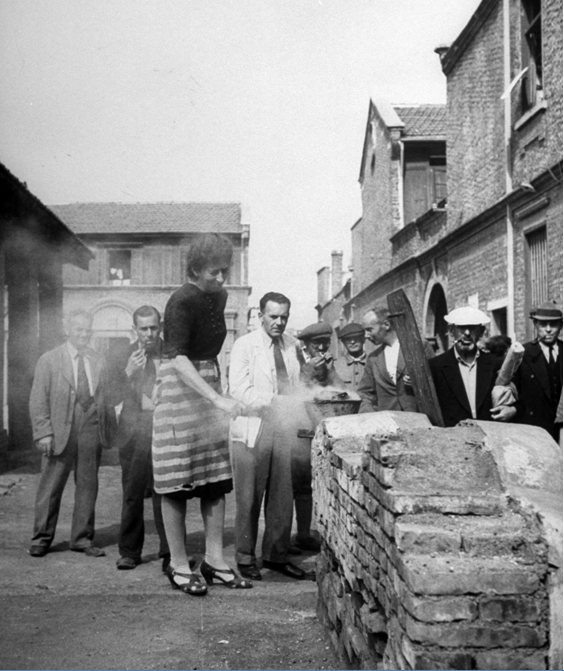
Some 18,000 European Jews lived in the crowded neighborhood of Hongkou, often eating only one hot meal a day, like those prepared at this charcoal stove.CreditGeorge Lacks/The LIFE Picture Collection, via Getty Images
And so Ilse and Erich, permitted only items like utensils, clothes and photographs and no more than 10 Deutschmarks, made their way to Italy, where they boarded ships bound for China. Shanghai had no visa requirements and, surprisingly, had a support system ready for them, largely financed by wealthy Iraqi Jews with British citizenship who had arrived centuries earlier. They created ways to house and feed the needy, a job later taken over by American Jewish agencies HIAS and the Joint Distribution Committee. Both my parents occasionally took advantage of the soup kitchen.
As it turned out, Ilse and Eric (who soon dropped the h from his first and last names) were among the more fortunate residents. Both were determined to enjoy their youths. My mother, quick to make friends, became her family’s breadwinner, waitressing in bars and restaurants. My father, who knew English, became a translator and English tutor. He also taught a British doctor’s son until 1943, when the Japanese occupiers interned foreigners and confined most Jews to the crowded square mile of Hongkou. My mother worked as a nanny. My father smuggled sausages.

Aboard the Conte Rosso, which sailed from Italy to China.Creditullsteinbild, via Getty Images
It was a strange existence, tougher on some people than others. “Some previously important people collapsed,” said W. Michael Blumenthal, the U.S. secretary of the Treasury in the Carter administration and the founding director of the Jewish Museum in Berlin. He came to Shanghai from Germany with his parents in 1939 when he was 13 and left in 1947 — the same time span as my parents. “Others, who had little education, had inner resources and were willing to put themselves out there,” Mr. Blumenthal said in a telephone conversation.
“I chafed, of course, being young and feeling a sense of impotence, that no one would ever care about this miserable place,” he said. It provoked in him a desire to prove himself and to be successful, he said. “Secondly, it influenced my political views, caring for people who have nothing, who have no one to care for them.”
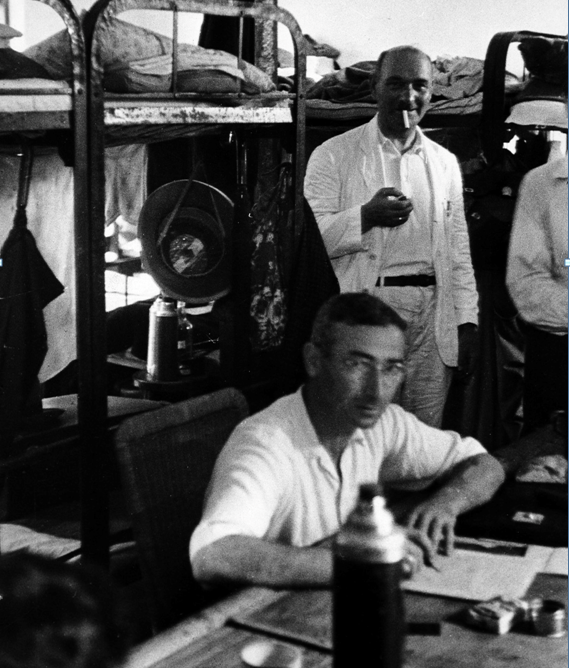
Inside the barracks at Hongkou.CreditWolfgang Weber/ullsteinbild, via Getty Images
Laurence H. Tribe, a Harvard Law School professor, a leading constitutional expert and an official in President Barack Obama’s Justice Department, also credited his direction in life partly to his years in Shanghai. These were very early years — he was born there in 1941 and left at age 6. His father, who as a young man had become an American citizen, was interned, he said, and young Larry recognized the injustice. “I thought, My father didn’t do anything wrong — why should he be in this place?”
Life in China seemed normal to many children, who attended a refugee school, said Lisa Brandwein, 83, who spoke at a library program. She lived in Shanghai from ages 3 to 12. “We went to school, we played,” she said. “But we sensed that our parents felt helpless.” Their Chinese neighbors, generally much poorer than the refugees, were always kind, she said.
Recounting the Shanghai Jewish story “is definitely a statement on the present refugee situation,” said Rabbi SholomFriedmann, director of the Amud Aish Memorial Museum in Brooklyn, which recently had its own Shanghai exhibition and is a partner in the library’s project, along with the Jewish Refugees Museum in Shanghai. The Jews “managed to set up shop and become a community there,” displaying “strength, courage and resilience,” he said. “The Chinese made the Jews feel welcome. You don’t hear about the tension that you might hear about in other refugee situations.”
As for my parents, they finally met in Hongkou during an air raid drill in 1945, shortly before the end of the war. My father, who had moved into an apartment near the one where my mother lived, had already noticed her, he told me. He made sure to stand next to her in a bucket brigade and introduced himself. Their romance began. A year later, they married. The following year, I was born.
Three months later, we were on a ship to America.
Editors’ Picks
A version of this article appears in print on April 28, 2019, on Page MB4 of the New York edition with the headline: Jews, Shanghai and a History Not Well Known. Order Reprints | Today’s Paper | Subscribe



